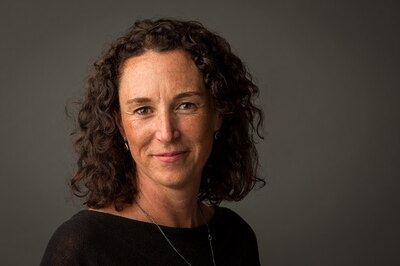Memphis is so central to California-based Aspire Public Schools’ growth plan that the charter network brought 30 principals from the West Coast to the city last week for training. The charter operator’s leaders thought its administrators in California and Memphis had a lot to learn from each other.
The California principals joined three who are already running Aspire charter schools in Memphis — all as part of the state-run Achievement School District, which assigns low-performing schools to charter operators with the ambition of propelling them into the top tier.
The network has expressed an interest in adding two more schools to its Memphis portfolio next year, to add to its national portfolio of 38 schools.
“There’s a tremendous momentum here in Memphis,” said Carolyn Hack, 40, the network’s new CEO. “There are a lot of people working together toward the same goal.”
Hack, who oversaw a major expansion by New York-based charter network Uncommon Schools, recently succeeded James Wilcox, whose eight-year tenure as Aspire’s chief included two initiatives — a teacher training program and student data platform — that have attracted national attention.
Wilcox’ tenure also included Aspire’s first foray outside of California: to Memphis in 2013. That’s when the network responded to Tennessee’s call for successful charter operators to assume operations at some of the state’s lowest-performing schools under the aegis of the ASD.
Aspire opened two schools in Memphis in 2013 — Hanley 1 and 2 — as well as Coleman Elementary in 2014 — in an environment that is markedly different from its comfort zone in California.
Unlike most of its open-enrollment charter schools in California, Aspire’s charters in Tennessee must follow state guidelines requiring them to enroll neighborhood children before other students and work within an existing culture.
In 2014, scores dropped at the network’s Memphis schools. Aspire officials said they had prepared students for the Common Core standards, which were different than the standards that Tennessee’s tests were based on at that time. But test scores seemed to stabilize in 2015, and the state invited the network to participate in this year’s process to convert six more Memphis schools to charters. Now, Aspire is competing with another charter operator, Philadelphia-based Scholar Academies, for two elementary schools — Caldwell-Guthrie and Sheffield — targeted for state intervention.
“We’re always focused on quality growth,” explained Allison Leslie, executive director of the operator’s Memphis schools. “We want to make sure the communities choose us in this process.”
Aspire prides itself on building strong relationships among students and teachers by having teachers stick with the same group of students for two school years and pairing each student with a teacher adviser throughout his or her time at Aspire. Every student also develops a personal academic goal.
ASD Superintendent Chris Barbic said Aspire is the kind of high-quality charter network that the district seeks to partner with in the challenging work of turning the trajectory of low-performing schools.
“We authorized Aspire based on their long track record of providing a quality education to low-income students across California,” Barbic said this week, “and based on their two years of results in Memphis, remain confident and excited about the track record they will continue to build for students in Memphis.”

Now, Hack says her goal is to “take care of the home front and build out in Memphis the way we envisioned.”
She told principals she was impressed with the depth in Memphis, including some teachers with 10 years of experience, but was reluctant to be specific about growth strategies as she continues to learn her new job.
Hack toured Hanley 1 Elementary School, observing teachers and talking with students about their work. A former San Francisco Bay Area high school math teacher, basketball and soccer coach with experience in the trenches, she liked what she saw.
“Aspire is the pinnacle of big and healthy,” she said. “I want to come up with an agenda together. The way we decide to adapt to change will define us.”

